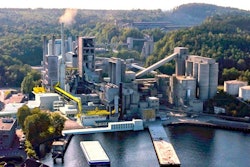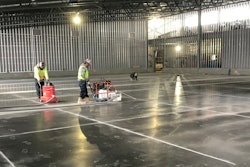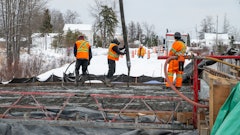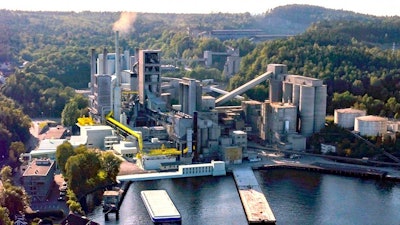
HeidelbergCement’s Norwegian subsidiary Norcem and the engineering company Aker Solutions signed an agreement for the supply of a CO2 capture, liquification and intermediate storage facility at the Norcem Brevik cement plant in Norway.
Using Aker Solutions’ Advanced Carbon Capture (ACC) technology, Norcem is planning to realise the first industrial-scale carbon capture plant at a cement production facility in the world.
"We are pleased to see our CCS project in Brevik move into the next phase,” says Dominik von Achten, chairman of the managing board of HeidelbergCement. “This agreement is an important step to considerably reduce otherwise unavoidable process-related greenhouse gas emissions.”
Ernest Jelito, member of the managing board of HeidelbergCement responsible for Northern and Eastern Europe-Central Asia and research and development, says, “With this project, we want to demonstrate that CCS is a feasible, safe, and economic technology.”
The agreement between Norcem and Aker Solutions is subject to the Norwegian government selecting the Brevik project for state funding and the resolution of the parliament to realize the Northern Lights project.
If the project is carried out, Brevik could become the world’s first large-scale carbon capture plant of the cement industry, with 400,000 tonnes of CO2 captured annually and transported for permanent storage.
HeidelbergCement has committed itself to reduce its specific net CO2 emissions per tonne of cement by 30% compared to 1990 by 2030. This target has been approved by the Science Based Targets initiative (SBTi) and is in line with the goals of the Paris Agreement, making HeidelbergCement the first cement company worldwide to have approved science-based CO2 reduction targets. By 2019, HeidelbergCement achieved a reduction of 22%. The company has announced that by 2030, 80% of its research and development budget will be spent on the development of sustainable products. HeidelbergCement will realize its vision of carbon-neutral concrete by 2050 at the latest.

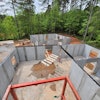
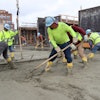

![Adobe Stock 186914228 5fb3f33b19f40[1]](https://img.forconstructionpros.com/files/base/acbm/fcp/image/2021/08/AdobeStock_186914228.5fb3f33b19f40_1_.611587037cce2.png?auto=format%2Ccompress&fit=crop&h=167&q=70&rect=0%2C204%2C1920%2C1080&w=250)
